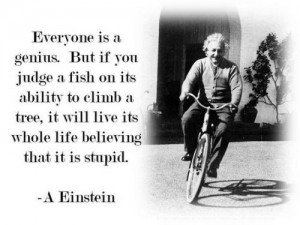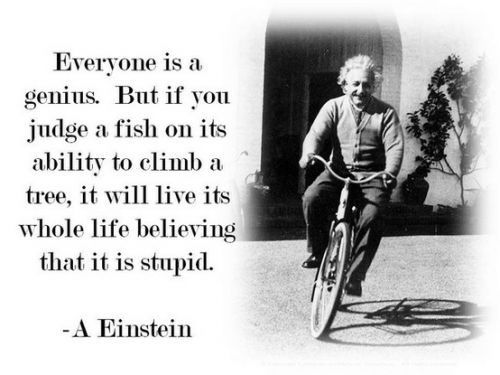A so-called “lack of capacity” is used to justify many antiquated practices in the aid industry. And if left an unexplored concept, capacity building is arrogant at best.

The general (and often pejorative) assumption in the development sector that the capacity of “local partners” should be measured by the degree of formal structure is something that must be re-examined.
What about the capacity found in local civil society groups’ deep contextual knowledge, embeddedness within communities, resourcefulness, language and cultural skills, and the ability to operative in a responsive manner to local needs? These are capacities that international NGOs and donors lack.
The Community Development Resource Association offers the following perspective,
“Donors need to engage in self-reflective practices themselves in terms of their own organizational needs. Yet the honest donor will admit how little this is practiced, how little responsiveness there is, how little real listening, and how many preconceived programs and methods are foisted on communities.
Some of these are in response to superficial fashions of the time, some of them to political pressures which are of northern, rather than southern, origin…If donors cannot respond to what is needed with considered flexibility and openness, then they should avoid the straw allegiance to the concept of capacity building, and even development itself, for it can only be regarded as posturing.”
 Perhaps the ability and penchant to understand and work with organizations of any size and type can and should become a core skill of anyone working on behalf of change. We need funders, aid practitioners, social entrepreneurs, and do-gooders thinking carefully and differently about what it is to do justice to local people’s own vast and vital efforts in the developing world.
Perhaps the ability and penchant to understand and work with organizations of any size and type can and should become a core skill of anyone working on behalf of change. We need funders, aid practitioners, social entrepreneurs, and do-gooders thinking carefully and differently about what it is to do justice to local people’s own vast and vital efforts in the developing world.
What do people need to develop? Technical assistance, oversight, and inspection? Or resources, solidarity and encouragement?
If there’s any capacity to be built after decades of development aid, perhaps it’s our own.
***
Related Posts
A new kind of aid donor: Four things they do differently
Accountability to whom? Keep asking.
Does aid need a 12-step program?


Great post. I think it hits on a lot of the inherent contradictions in development work. When doing community development work for very small non-profits one thing I heard over and over – from Indigenous communities in North America, South America and the Pacific was the need for outsiders/donors/NGOS/etc to really listen and not necessarily offer solutions. I remember being told by an elder from the Stoney Nation that “The ability for others to come in and hear our story and sit with our pain is what we are asking. We have our own solutions to our problems, but what we need is to feel acknowledged and have our history heard by others – that is an important part of our self-determination and development as a nation”
When working with coops in Mexico, I would have to justify why we were spending three days doing “nothing” at the beginning of a trip. But it wasn’t “nothing” – we were breaking bread, getting to know one another, telling our stories, etc. – the prerequisite before any “real” work – the work that funders were paying for – began.
I’m not sure how we can infuse the very important work of deep listening, presence, and self-reflection into capacity-building work in a time of dwindling resources when we are so focused on technology and efficiency, but I look forward to more posts on this topic!
Even if local organizations define “capacity-building” as formal structure the way many funders do, trying to achieve formal structure is impractical if not impossible in many cases. Lee’s point about fostering self-reflection hits the point well: if building capacity is important, and I would argue that in many (though not all) cases it is, local organizations should be allowed to define what that means for them.
Sometimes resources from the outside block the surfacing or strengthening of peoples own resources or resourcefulness. Solidarity is good, of course, especially when it goes both ways, ie the south in solidarity with those in the north stru…ggling in the belly of the beast (Viva the Occupy Movement!). Remember that poverty and oppression in the south is not the problem, but rather the symptom or manifestation of a global problem. Not only north-south solidarity but supporting (mostly resourcing) the building of horizontal solidarities at a grassroots level as the basis for local organisation. And sometimes technical assistance is fine, as long as it strengthens what is there.
Pingback: The customer is always right… right? | The Impact Curve
The reality for most local organisations is that accessing such funding is very rare; one of our partner organisations, who work with vulnerable children in the red light districts of Mumbai, recently told us that no other donor in their 25 years as an organisation had ever given them a grant to be used to build the organisation’s capacity….Might this be a reflection of the unwillingness of donors to let go of power?
At STARS Foundation, we support local NGOs through the STARS Impact Awards – a package which includes unrestricted funding and tailored consultancy support. Underpinning these partnerships is a philosophy which aims to challenge some of the issues outlined in this article; we recognise organisations’ deep contextual knowledge and existing capacities, whilst supporting them to develop other capacities further, led by their own beliefs in what is best for the organisation and its beneficiaries. Ultimately, our approach is underpinned by a belief that these organisations are best placed to respond to local needs, and should therefore be the driving force of any decision making within their organisation.
Although capacity building alone won’t foster empowerment among Southern NGOs, a more meaningful and open approach from donors might (at the very least) help move towards re-addressing the power balance between the North and South.
I found myself struggling to reconcile this post with the opening story of the next post “The Real Experts.” I completely agree that (in my org’s case) our local coordinators possess high level of expertise and are more capable than I am at implementing a program in their community. Yet how do I then turn around and claim to be an expert in my area of work – so that I can talk with authority about it? I’m struggling to find the balance between admitting how little I know while also claiming my expertise in community development. Thanks for provoking these interesting thoughts…